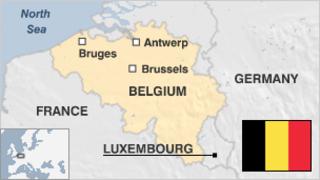Belgium country profile
For such a small country, Belgium has been a major European battleground over the centuries.
Occupied by Germany during the First and Second World Wars, it has experienced an economic boom in the past 50 years to become a model Western European liberal democracy.
However, there has also been a growing divide between the mainly Dutch-speaking north and the mainly French-speaking south, as well as concerns about the growth of Islamic extremism among immigrant communities in the capital, Brussels.
Brussels is the headquarters of the European Union and the North Atlantic Treaty Organisation (Nato), making it the polyglot home of an army of international diplomats and civil servants.
FACTS
Key facts – Kingdom of Belgium
Capital: Brussels
Population 11.5 million
Area 30,528 sq km
Major languages Dutch, French
Life expectancy 79 years (men), 84 years (women)
Currency euro
Major religion Christianity
LEADERS
Monarch: King Philippe
King Philippe succeeded to the throne in July 2013 on the abdication of his father, the 79-year-old Albert II, who stepped down on health grounds.
Respect for the monarchy is one of the few factors that crosses the communal divide in Belgium, and King Albert exercised his constitutional authority in advising political leaders on the formation of a government during the 2010-2011 parliamentary stalemate.
Prime minister: Charles Michel
Following elections, Reform Movement leader Charles Michel formed a right-wing coalition in October 2014, becoming at 38 the country’s youngest prime minister since 1841.
His liberal party comes from the French-speaking community, but the other three parties in the coalition represent Dutch speakers – including the nationalist New Flemish Alliance (N-VA), which came first in the elections.
MEDIA
Belgian broadcasting mirrors the unique political and linguistic nature of the country. The cultural communities, rather than the federal authorities, are responsible for regulating radio and TV.
TIMELINE
Some key dates in Belgium’s history:
1830 – Declaration of independence from Netherlands.
1914-18 First World War – Occupied by Germany.
1940-45 Second World War – German occupation.
1993 – Constitution changed to recognise division of country into three administrative regions: Flanders, Wallonia and Brussels.
2002 – Euro replaces Belgian franc.
2016 March – Islamic State suicide bombers kill 35 people in attacks on Brussels.
Source: Read Full Article



